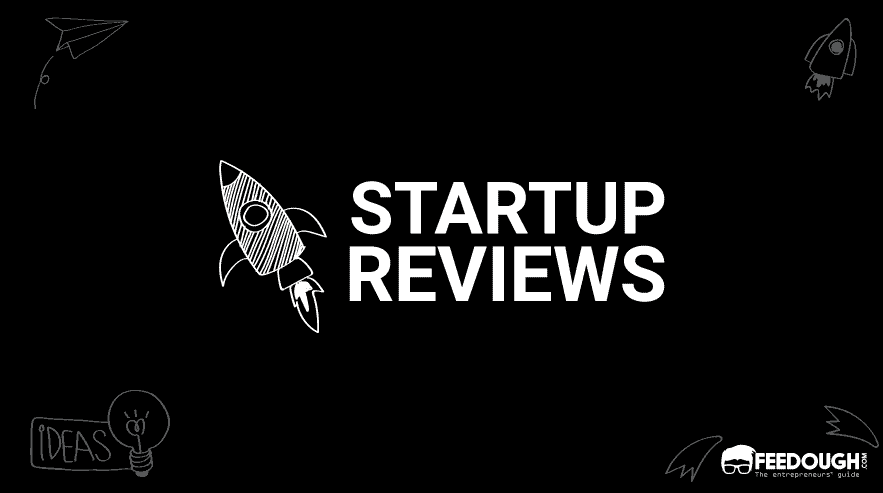There are 2 kinds of people –
First, who dream of getting into an established multinational company with an established role and a salary digit which leaves people awestruck.
The other one includes people who want to work with emerging companies, better known as startups. These might offer less pay but the opportunity could be exhilarating.
This swift comparison between “the established vs the emerging” attracts a lot of debate. However, one cannot disagree with the fact that every established brand or company was once an emerging startup. This is often the reason why a staggering number of people are inclined towards them.
If you’re among those who are inclined towards working with a startup, this article is for you.
Your next steps include you to discover your requirements and expectations from the job. Based on a totalitarian approach, these are the three most common types of requirements an employee has from a job.
- Remuneration or monetary benefits
- Growth and recognition
- Cultural diversity and socialising
You need to prioritise what amongst the following holds key importance and ask some questions before committing your time and effort to the job.
Here are some common questions to ask before joining a startup for your reference:
Remuneration Or Monetary Benefits
The popular notion regarding startups is that they pay excessively less to their employees. While many researches support this statement, yet there is no universal declaration as of yet.
The salary structure of any startup depends on a variety of factors, like the stage at which it is currently operating or the niche under which you are employed.
Most of the comparisons made between a startup and a globally established company are made in terms of market rate, for comparing the average salary. However, if you look closely you will understand how biased this method of considering the market rate is.
A startup in its initial stage is not in a position to flex according to the market equilibrium in terms of salary. However, if you look at the long term picture, it will strike you that it is the startup that amplifies your earning potential to unimaginable rates, which again won’t match the market rate.
Questions To Estimate The Earning Potential
If you are offering your skills in exchange, you need to know how much pure cash you can make via this startup. To make this estimation, 3 questions will help you get sorted.
1) What’s The Scope Of Salary For This Position?
How much is the salary? Is it worth your effort, dedication, mind?
Will putting more effort help you earn more?
2) How Is My Remuneration Going To Be Measured?
Understand the process and salary policies adopted by the company while paying its employees.
3) What Is The Criteria For A Bonus?
Understanding if bonuses are timely or work-based or event-based. This will help you assess when and how you can improve your chances of earning more.
Now, what if the salary estimation is a surprising (positive) amount, but the chances of this startup to crash by the next year is high. If you have such notions, you need to add some additional questions to your list.
Questions To Assess The Long Term Feasibility
If you have a mixed opinion about the survival chances of this startup, here are the questions you need to ask.
4) Is The Company Market-Ready With Its Offering?
Does the offering has a proven product-market fit or is the company still in the testing phase?
A startup that is still developing a product has more chances of failing in the coming future.
5) What Is Its Current Stage Of Revenue Generation?
Usually, startups go through these three stages of revenue generation –
- No revenue: In this stage, the business doesn’t generate any money from its business activities and the expenditure is covered by a limited investment.
- Break-Even: The business generates enough revenue to cover the expenses.
- Profitability: The revenue generated is more than the expenses and is expected to grow.
Here, it is also important to understand that revenue and profit are two entirely different concepts. While profit is accounted for after deducting expenses and operating costs involved, revenue is concerned with the amount earned from the primary business or ‘sales.’ It does not take into account any expense or debts for its calculation.
6) What Is The Burn Rate? What Is The Runway?
Burn rate is the rate at which the startup uses its liquid cash. It is a periodic measure calculated by accounting existing and new cash inflows and cash outflows of the company.
Runway is the amount of time the startup has before it runs out of cash.
Suppose the startup has an investment of $100,000 and generates $1,000 per month. It, however, spends $5,000 per month. The burn rate of this startup would be $4,000 per month and its runway be 25 months.
An additional question would be to look at the kind of people involved in the top management and their long term vision for the startup. How flexible can they be with the needs of the changing times?
Questions To Assess Prospects Of Gains Through Equity
Equity in a startup requires quite a lot of research and one needs to be properly equipped with the required knowledge. If you are skeptical about this option, ask these 3 questions to determine your equity windfalls in this startup.
There is no point in deliberating over the number of shares you hold. Rather focus on the percentage that they represent.
8) What Does It Mean For My Total Preference Stack?
In case there is a huge sum owed in liquidation preference, your equity is likely to be of much more loss than a profit.
Liquidation preference is a guarantee for some preferred shareholders (investors) that they’ll get paid first and at least a certain amount when the company sells.
This makes the employees’ share even lesser valuable.
Here’s an example –
Suppose an investor invested $2 million in a startup you work in. In return, the investor got 20%, the two cofounders got 35% each and the rest 10% is split evenly among 5 employees.
Now, after a few months, the company sells for $8 million.
Here –
- The investor gets $1.6 million,
- Cofounders get $2.8 million each, and
- Each employee (including you) gets $160,000.
In this scenario, while the cofounders became millionaires and the employees got a good share, the investor lost $40,000.
Now, to protect his right and his investment, the investor is usually guaranteed a liquidation preference – let’s say $5 million in this scenario, which results in a drastic reduction in the share of employees.
9) What Will Be The Minimum Price For Me To Exit?
Setting a minimum price will help you compare the final amount you are likely to earn from the established base.
You know equity is safe and profitable when they represent a decent percentage, is not indebted with a preference stack and your final payout can be a massive IPO turnout too.
But, if you are one of those people who are much more inclined to achieve a career oriented growth rather than pay related growth, then the questions are a bit different. Let us look at the next section to understand the needs of this section of wannabes.
Growth And Recognition
Before getting deep, let us try to understand why growth in this section is different from monetary growth. The common assumption is that the end goal should be to earn in millions and further, expand this income size.
Let me give an example to explain this better. The Silicon Valley is home to five of the world’s eight most valuable companies, capturing almost $4 trillion, yet they employ merely 1.2 billion. These companies are increasingly supported by AI and hence, they provide limited opportunities for a person to grow.
They might pay you a lot but at the end of the day, the work involves doing the same stuff every single day. As a result, several employees start looking for jobs that provide them with more job flexibility and diverse roles and responsibilities.
Now let us try and decode what we need to ask ourselves before getting into a startup with such requirements.
10) What Are The Available Growth Opportunities?
Sometimes, people get hired for a position they have always been dreaming of. But the functions seem to get boring after some time as they get repetitive.
You need to identify if there is enough room for you to flex all your skills and upgrade accordingly.
11) Will I Be Given Responsibilities Or Will I Be Just Merely Accountable?
Identifying a role that provides enough growth means identifying how much responsibility you will be subjected to. This responsibility will further lead to accountability.
As an employee, you will be asked to get something done. Not getting it done might lead to serious repercussions. However, you are not included while deciding the time frame required to get the job done or provided with the required resources. This is merely accountability.
You need to get yourself into a position that provides scope for responsibility under which there is decent scope of independent decision making as well.
12) How Do I See The Best Person In This Skill Growing In This Position?
If someone with the best skills of playing any musical instrument cannot get themself a chair at Carnegie hall, then there is something wrong with the place.
Simply put, you need to understand if there is enough room for you to grow, given your skillset.
13) Will I Be Learning Something New?
You can understand this by looking at how diverse employee culture is at the organisation and how many perspectives are being discussed while solving a problem.
For instance, if employees are merely informed or their opinion considered while discussing the product strategy. This will help you understand how much of your say will be actually heard and how much of it will go overheard.
14) How Big Is This Startup?
This is important to understand how much their mention will affect your CV for future roles. Additionally, it will be better if you can dig through the founder’s life and be clear if they don’t have any dirt in the past which can potentially damage your future opportunities.
15) What Kind Of People I’ll Be Networking With?
Networking can take you to places and this has been successfully established in the present world. From the kind of people you interact with daily to the ones you get to see on a few occasions, assessment is crucial. Your network not only impacts your daily life but it also shapes up your outlook about the future and your wants.
Ask yourself, what kind of people will you be networking with? Will it help you in future?
16) Will This Get Me To My Destination?
Do you simply want a higher position in the same company or want the same position in a different company? Evaluating the present offer in terms of where you want to be in the future is essential.
Now, for the culturally enthusiastic and provoked people, the next section belongs to you.
Cultural Diversity And Socialising
The present generation pays much more importance to their environment than the previous generation. What sets them even more apart is a noncompromising attitude when it comes to jobs that do not cater to their interest and aspirations. If you are someone who can not fit in a standard work environment but want more flexibility, then the next section will help you make a clear choice.
Questions To Assess The Company’s Values
The workplace culture manifested by any company lies in its mainstream policies that guide the work environment.
17) What Are Their Core Values?
These values go beyond the website’s homepage and can be noticed in the day to day meetings and conversations.
Assess if they value their employees as much as they value work.
18) How Are These Values Reflected In The Company’s Policies?
If they consider their values while framing policies for the organisation, you know you are in the right place.
19) Who Can’t Fit Here?
Even the most influential people will sometimes have to give up in front of a company that stands firm on its core values, and that in turn says a lot about their preferences.
Now, you are required to understand the communication style that flows through this organisation.
Questions To Assess The Communication Style
How informal and formal communication takes place into the organisation and how much leverage they are ready to provide.
20) What Is The Scale Of Socialising
How employees socialise with each other and how much they tend to converse in between, will help you understand if you can fit in.
21) How Communication Takes Place In The Hierarchy?
If there is space for one on one conversations without following a fixed chain or this chain can never be broken. Such a network is crucial to understand how your concerns will be addressed by whom.
You can even look out for how the organisational feuds are handled. If a certain employee has a problem with his immediate superior, then how can he/she reach out for redressal.
22) How Does The Company Influence Socialising In Its Space?
The kind of social events a company organises and how they encourage employees to participate.
You need to further assess how you can fit yourself in such a circle. For instance, being an introvert, handling weekly social gatherings can be a major trauma for you.
Level of flexibility
This is crucial to understand if your lifestyle will be able to mold according to the company’s policy and how flexible are they willing to go with their employees.
23) Does The Company Promotes ‘Work From Anywhere’?
Work from home and work from anywhere are some of the new important factors to consider while joining a company. Do clear out your doubts about such norms with the company.
24) What Is The Vacation Policy?
If you have a wanderlust, this might be the deal maker or breaker for you.
Once you are sorted with this list of questions, you simply have to take your final call.
Final Word
There will be times when you won’t be able to ask the employer all the questions you have in mind. In such cases, it is a good practice to connect with existing employees and clear your doubts before committing anything to the company.
Go On, Tell Us What You Think!
Did we miss something? Come on! Tell us what you think about our article on questions to ask before joining a startup in the comments section.
A startup analyst who believes that every big project is the result of numerous small efforts that go into the way. Giving anything below 100% is a huge setback to my natural capabilities.









